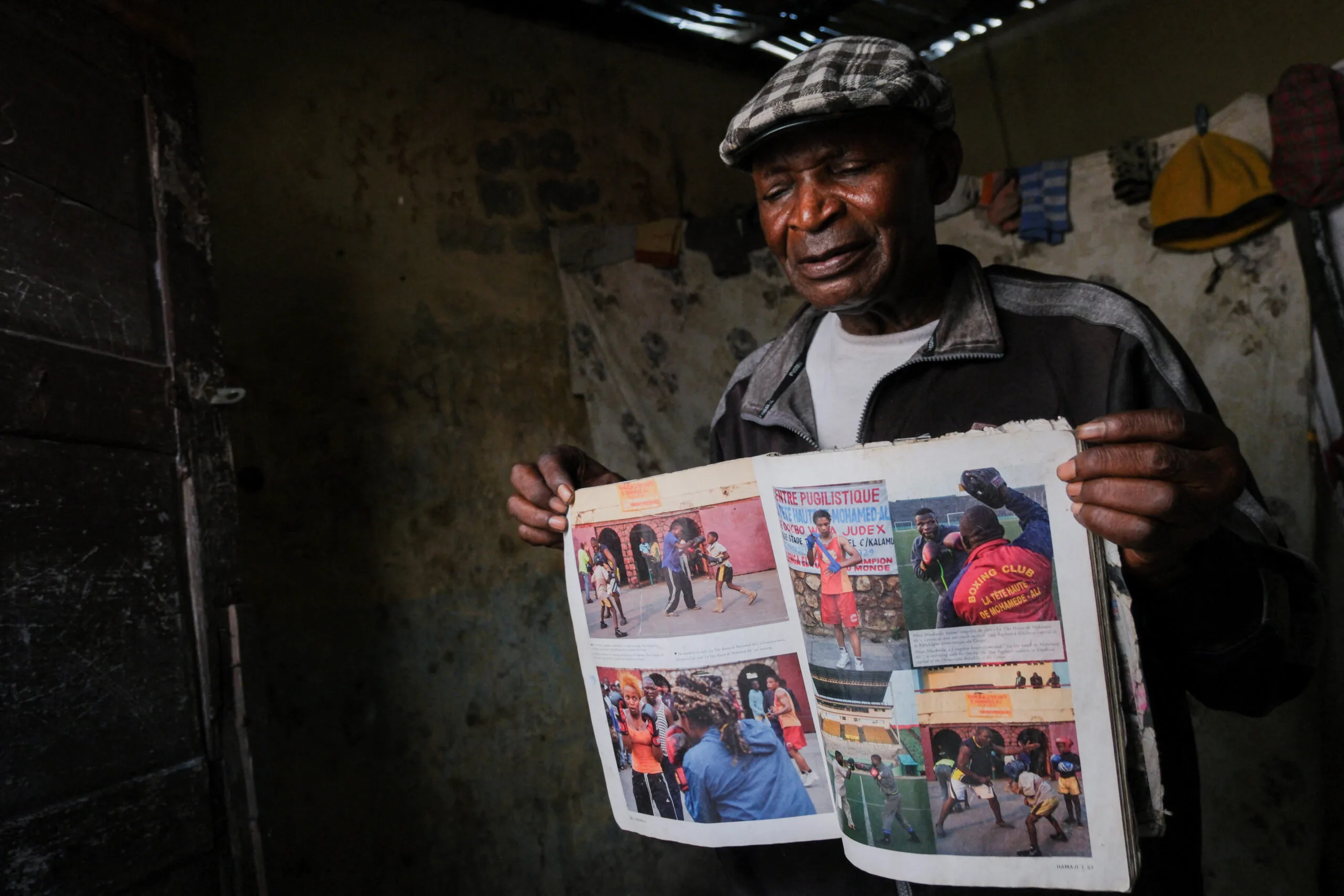
‘Rumble in the Jungle’ is maintained by Kinshasa’s coach
In the same gym where Muhammad Ali warmed up before the “Rumble in the Jungle” battle fifty years ago, Tshibanda Wata Judex was training a young fighter, ducking and weaving as the sound of strikes reverberated through the Congolese capital Kinshasa.
As the October 30th anniversary of the historic 1974 bout against George Foreman draws near, Judex, 71, recalled on Wednesday the excitement of packing the stadium to witness the heavyweight bout that was broadcast live around the globe.
He claimed that after walking through the deserted Tata Raphael stadium, the event inspired an entire generation to start boxing in what was then known as Zaire.
“All Congolese have been striving to work in boxing since 1974. Previously, our fathers believed it to be a kind of banditry, but it was actually a job. We put forth a lot of effort,” he remarked.
“I’m proud because Muhammad Ali inspired this country.”
The fight, which was planned for 4 a.m. local time to maximize television exposure in the United States and had been promoted for months, brought some of the most well-known people in the world to a nation that most Westerners at the time only knew for its occasional episodes of instability.
Judex seemed to remember every move, narrating how, in front of 60,000 spectators, the underdog Ali won eight thrilling rounds.
Seven years after losing the world title for refusing to be conscripted to fight in Vietnam, Ali triumphantly recaptured it, solidifying his legendary reputation that has persisted to this day.
“Foreman was a powerful hitter, and Muhammad was a stylist. Muhammad took a lot of punches from Foreman, which made for some stressful moments. Foreman, however, “went down with a crash like a falling elephant,” Judex said with delight.
Judex, who lives in a working-class neighborhood, has souvenirs of the fight that motivated him to become a coach and start the first women’s boxing club in the Democratic Republic of the Congo.
With his arms up in triumph, he put on a t-shirt featuring Ali’s picture on the front and flipped through a well-worn magazine to display pictures from the fight day.
Having met Ali in the gym before the event, he became a lifelong supporter. “I’ve kept this souvenir to show my children and grandchildren that I was there at the battle of the century,” he added.
“We were his fan club on the day of the fight of the century,” he stated. “Ali Boma ye (‘Ali, kill him!’ in the local Lingala language) – it was us who were chanting that.”
All Categories
Recent Posts
Tags
+13162306000
zoneyetu@yahoo.com



